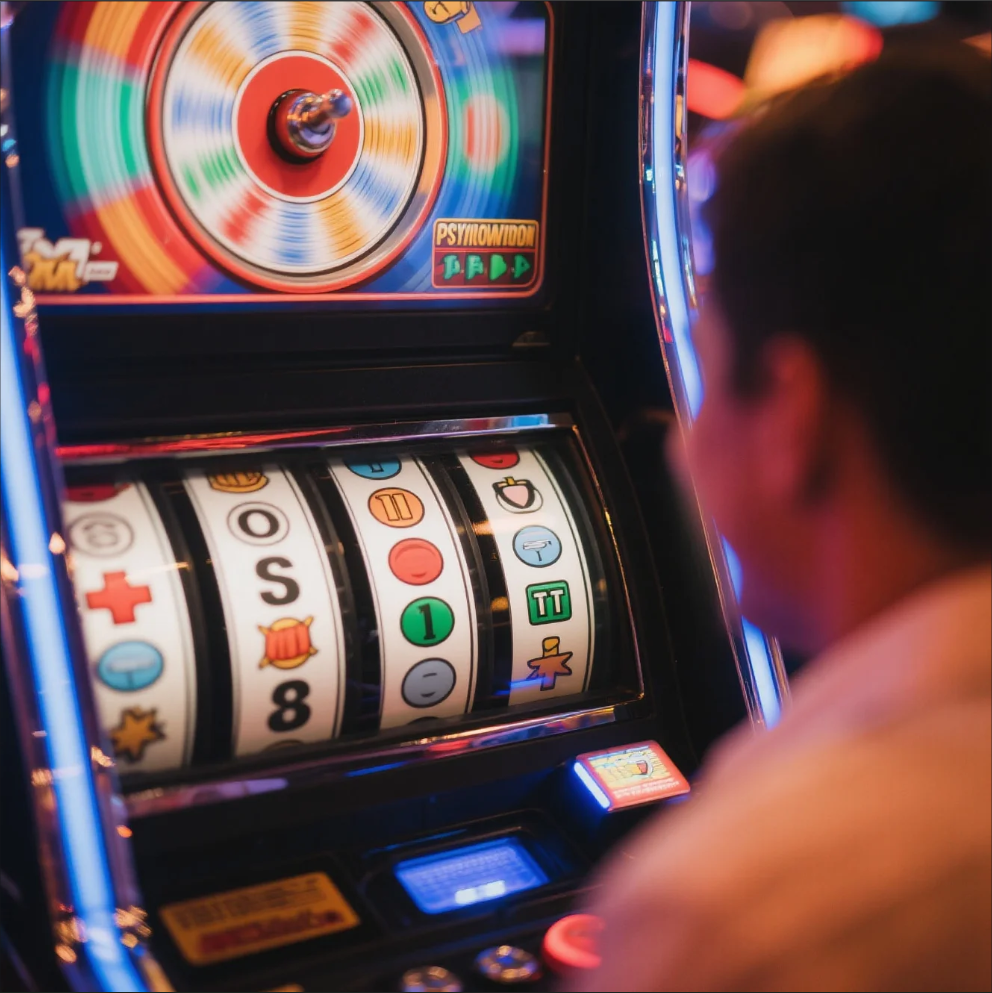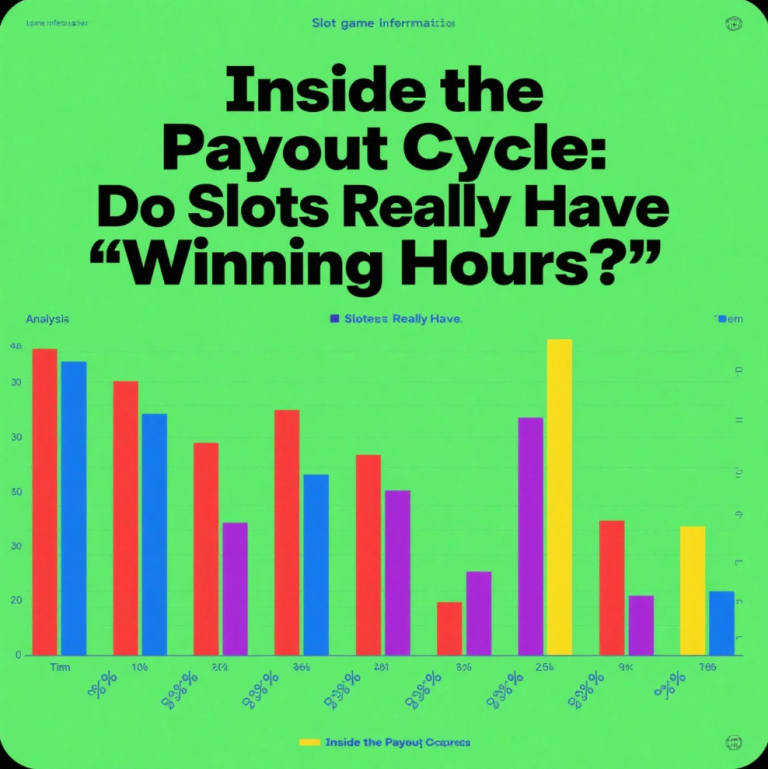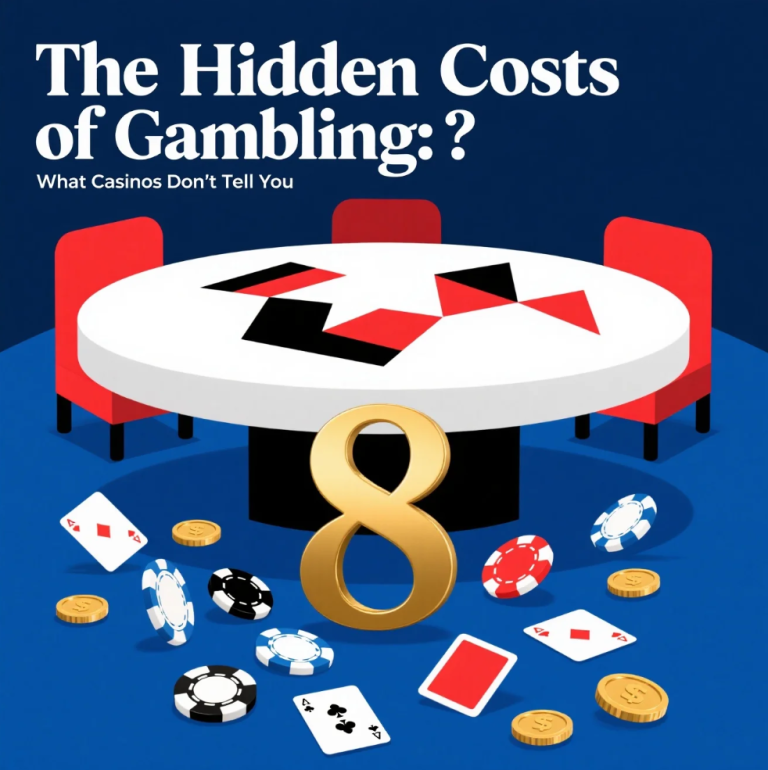
Slot machines are one of the most popular forms of entertainment in casinos around the world. With their flashing lights, exciting sounds, and the potential for big wins, it’s easy to understand why players keep coming back for more. But behind the fun and thrill of spinning the reels lies a complex psychological mechanism that keeps us playing—even when we don’t always win. In this article, we’ll delve into the psychology of slot machines and explore why we keep spinning even when the odds are against us. 🔄🎰
1. The “Near Miss” Effect ⚠️
One of the most powerful psychological triggers in slot machines is the “near miss” effect. A near miss occurs when the symbols on the reels come very close to lining up for a win but ultimately fail. For example, landing two out of three jackpot symbols, but not quite hitting the third. While you didn’t win, the sensation of being so close to a payout can create a strong desire to keep playing.
Why It Works:
- Hope and Motivation: Near misses make players feel like a win is within their reach, keeping them motivated to spin again.
- Cognitive Bias: The brain often interprets near misses as “almost wins,” which tricks us into thinking we are more likely to win next time.
2. Variable Reward System 🎁
Slot machines operate on a variable ratio reinforcement schedule—a system where rewards (in this case, payouts) are given at unpredictable intervals. This means players never know when they will hit a jackpot, creating an element of surprise and excitement that keeps them coming back.
Why It Works:
- Dopamine Release: Every time we win, even a small amount, the brain releases dopamine, the “feel-good” neurotransmitter. This creates a feeling of pleasure and reinforcement, prompting us to keep playing.
- Anticipation and Thrill: The uncertainty of when the next reward will come makes the game more exciting, creating a psychological hook that keeps players engaged.
3. The Illusion of Control 🕹️
Many players believe they have some form of control over the outcome of slot machines, even though the games are entirely based on random number generators (RNGs). Whether it’s pushing the button at the “right” time or choosing specific machines, players often feel like their actions can influence the result.
Why It Works:
- Locus of Control: Feeling that we have control over our environment can reduce anxiety and increase engagement. In the case of slot machines, this illusion makes players feel more involved and invested in the game.
- Superstition: People often develop superstitions, such as pressing the button a certain way or waiting for a specific moment, believing it will lead to better outcomes.
4. Gamification and Reward Loops 🎮
Modern slot machines are designed with gamification elements, like levels, achievements, and bonus rounds, which keep players engaged. These features introduce reward loops, where players are given small rewards (like free spins or bonus credits) that create a sense of accomplishment.
Why It Works:
- Achievement and Progression: The feeling of “leveling up” or completing tasks in the game creates a sense of progress, making players feel like they are getting closer to a big win.
- Instant Gratification: Rewards in the form of bonus rounds or free spins provide instant gratification, keeping players interested and emotionally invested.
5. Social Influence and Group Dynamics 👥
Slot machines in casinos are often placed in high-traffic areas, where the sounds of jackpots and cheers from nearby players can influence behavior. The social environment around slot machines plays a big role in why people keep spinning, as we’re naturally drawn to social proof and excitement.
Why It Works:
- Social Proof: When we see others winning, our brain associates it with the potential for success, making us more likely to keep playing.
- Group Influence: The atmosphere in a crowded casino can amplify the excitement and create a herd mentality, encouraging more spins.
6. Escapism and Stress Relief 🧘♂️
For many people, playing slot machines is a way to escape from everyday stress and find relaxation. The repetitive, easy-to-understand nature of the game allows players to “zone out” and temporarily forget their worries. The lights, sounds, and thrill of potential wins create an immersive experience that draws people in.
Why It Works:
- Distraction from Reality: The flashing lights and constant action distract players from life’s problems, providing a mental break.
- Stress Reduction: The predictable nature of slots, where players know the rules and game mechanics, creates a sense of control in a world that can sometimes feel out of control.
7. The “Hot Hand” Fallacy 🔥
The “hot hand” fallacy is the belief that a streak of wins (or losses) will continue indefinitely. If a player wins a few times in a row, they might feel “lucky” or that they’re on a winning streak, which encourages them to keep spinning. This fallacy is not based on reality, but the belief in it is strong and drives continued play.
Why It Works:
- Cognitive Bias: Players believe that their recent success (or failure) will continue, even though each spin is independent.
- Overconfidence: Winning streaks lead to overconfidence, pushing players to wager more in hopes of “hitting it big.”
8. Rewarding Large Jackpots and Big Wins 💰
Finally, the promise of massive jackpots is one of the most compelling reasons people keep playing slot machines. The idea of hitting it big on a single spin is enough to keep players hooked, especially when jackpots can reach millions of dollars.
Why It Works:
- FOMO (Fear of Missing Out): Players worry that if they stop playing, they’ll miss their chance at hitting the jackpot.
- Hope and Optimism: The possibility of a life-changing win keeps players hopeful and invested, even if the odds of hitting a jackpot are slim.
Conclusion 🎉
Slot machines are designed to captivate and engage players, using a variety of psychological triggers that keep people spinning the reels. From near misses to the illusion of control and the thrill of big jackpots, these machines tap into fundamental human emotions like hope, excitement, and the desire for reward. Understanding the psychology behind slot machines can help players be more aware of the factors influencing their behavior, but it doesn’t change the fact that slots are addictive and can lead to irresponsible gambling. Always play responsibly and set limits to ensure the fun stays in control. 🎰✨



